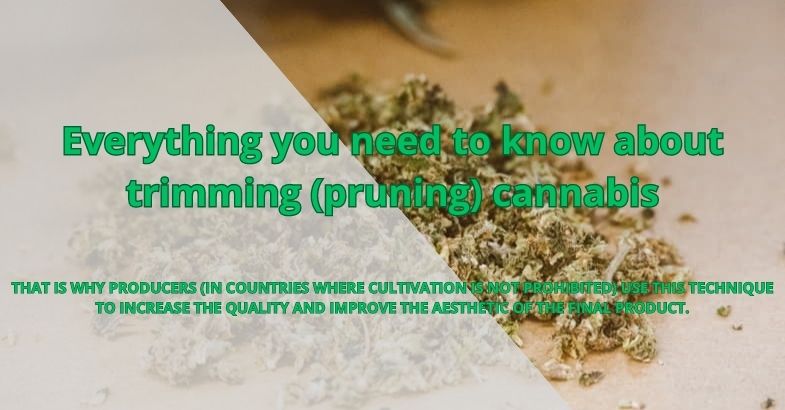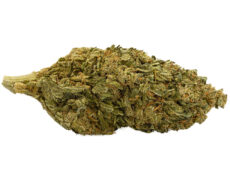Modified on: 19/04/2024
THAT IS WHY PRODUCERS (IN COUNTRIES WHERE CULTIVATION IS NOT PROHIBITED) USE THIS TECHNIQUE TO INCREASE THE QUALITY AND IMPROVE THE AESTHETIC OF THE FINAL PRODUCT.
They do not reduce the quality of the final product, but they do reduce the yield of the crop. Here why.
If you are a novice grower (and live in a country where cannabis cultivation is allowed), you may have never heard of this word.
-
 SMALL & BIG
SMALL & BIGBUBBLEGUM
Starting from: 1,25CHF/gIndoor | CBD – CBDA <22%
Grams3 5 10 20 50 100 -


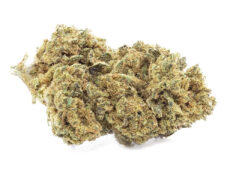
DO SI DOS
Starting from: 2,00CHF/gIndoor | CBD – CBDA < 19%
Grams3 5 10 20 50 100 -


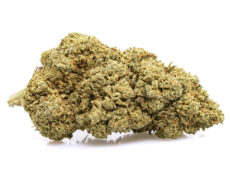
ROYAL GG#4
Starting from: 2,30CHF/gIndoor | CBD – CBDA < 40%
Grams3 5 10 20 50 100 -


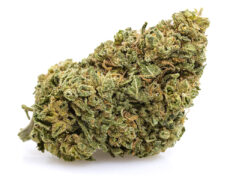
GORILLA GLUE
Starting from: 2,90CHF/gIndoor | CBD – CBDA < 20%
Grams3 5 10 20 50 100
Bud trimming is an activity you should seriously consider to improve the flavor and aroma as well as the appearance of your buds. Conversely, careless trimming could deteriorate the quality of the harvest.
In this article we guide you step by step towards the practice of trimming, explaining why it should be done, when and how best to do it.
Also read: Why can cannabis leaves turn yellow? Let’s clarify
What is trimming and why is it so important?
After cutting the plant and before curing it, it is common practice for all cbd weed growers to clean the buds, or in technical jargon we would say ‘trimming’ the resin-rich leaves that stick to the buds of the plant.
Trimming consists precisely in removing from the inflorescences, thanks to a pruning shears, all waste substances, such as twigs or leaves that are not suitable for consumption. We must not forget, in fact, that cannabinoids and terpenes are produced by the trichomes present in the inflorescences.
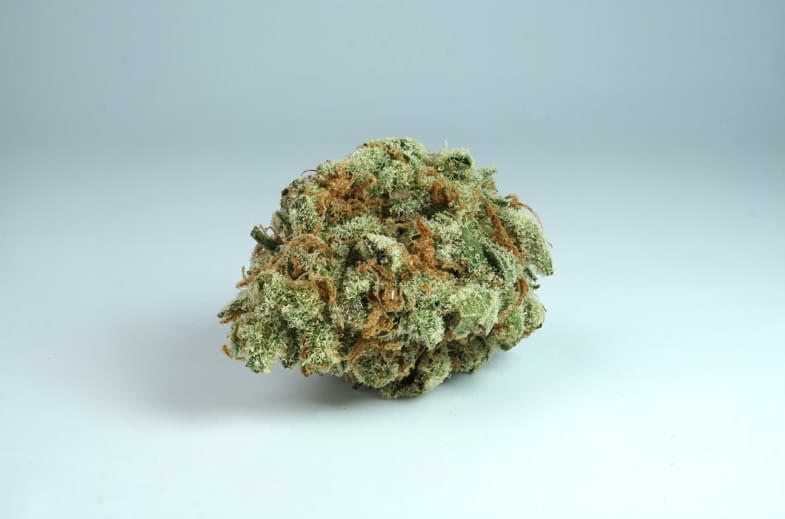

Trimming is essential if you don’t want to waste the sacrifices made to grow plants.
Striving for a correct pruning of the buds not only guarantees a better product, in terms of appearance, taste and smell, but also ensures the success of a healthier product, since pruning prevents the risk of bacterial proliferation.
The presence of leaves in contact with the flowers, in addition to altering the taste of the buds, can increase the risk of mold formation or, in any case, moisture accumulation.
Let’s also remember that trimming is only one of the stages of cannabis preparation. Usually, even before cutting the plant, a purification of the roots is carried out. This stage, which takes place in the last two weeks of flowering, consists of rinsing the roots to remove any traces of fertilizers or other substances that are harmful to human health.
When and how to trim the buds of the cannabis plant
Since each grower has their own trimming technique (some prefer to keep the resinous leaves that stick to the buds, while others tend to remove them), there are basically two most common types: wet and dry trimming.
In the first case, the pruning of the buds is carried out immediately after cutting the branches, while in the second case, the drying of the plant is expected beforehand. Let’s take a closer look at these different techniques.
Also read: Growing marijuana outdoors: typical characteristics of outdoor varieties include the following
Cannabis Wet Trimming
Wet trimming, which is done when the plant is still fresh, that is, before starting to dry, consists of cleaning the CBD buds of the leaves that are close to the flower.
The advantage of this technique is that it makes pruning the buds easier and faster, since the buds are still wet and the leaves do not stick to them.
This explains why this technique is preferred by beginners who do not risk damaging the flower. In general, trimming is done directly on the branches to facilitate the cleaning of the inflorescences.
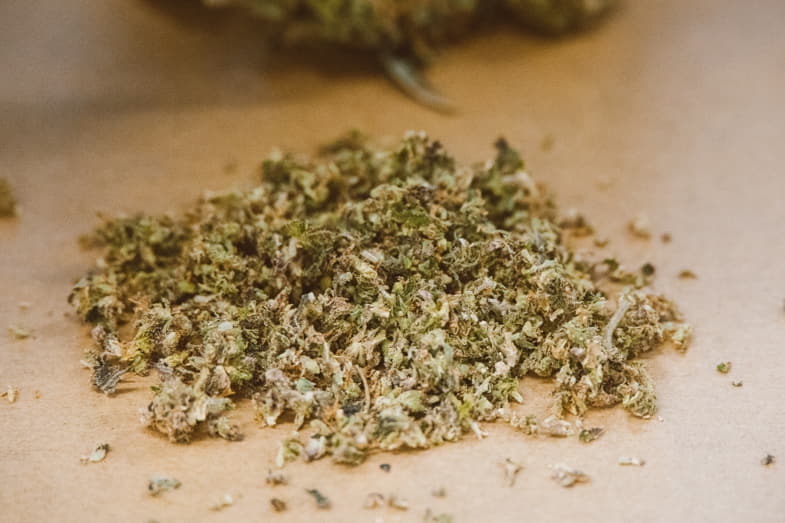

Cannabis dry trimming
Dry trimming, on the other hand, is done after drying and immediately before tanning.
This makes it more difficult to remove the resinous leaves which, being dry, adhere to the inflorescences and make it more difficult to separate them.
On the other hand, the advantage of this technique consists in maintaining a greater amount of resin compared to wet trimming, as well as slower water absorption, which allows it to give a more intense aroma.
Some growers trim both wet and dry in this way: when cutting, the larger leaves are removed, while immediately after drying, the smaller leaves closest to the buds are cut.
Regardless of the technique used for pruning the buds, at the end of this process residues accumulate (mainly branches and leaves) that can be used to prepare tinctures, infusions and edibles. It will clearly be the leaves extracted from the buds, since they are rich in resin (and cannabinoids), which will be used in the preparation of cannabis derivatives, such as the CBD cannabis.
In conclusion
In countries where it is allowed to grow cannabis, trimming is an essential phase for the realization of the final product, since it improves not only the aesthetic appearance, but also the flavor and aroma.
In this article, we explain how to do it optimally, to help producers obtain a more refined product.
Finally, we have seen the two main types, that is, wet and dry trimming. If the first is carried out immediately after cutting the plant, then the second occurs only after it has dried.
Here we have talked about trimming, but if you want to know more about drying cannabis, we recommend that you also read this article.
Before I say goodbye, I invite you to take a look at the wide range of CBD-based products available in our online store: at Justbob you will find cbd oil, CBD flowers and many other great collectibles for enthusiasts like you!

